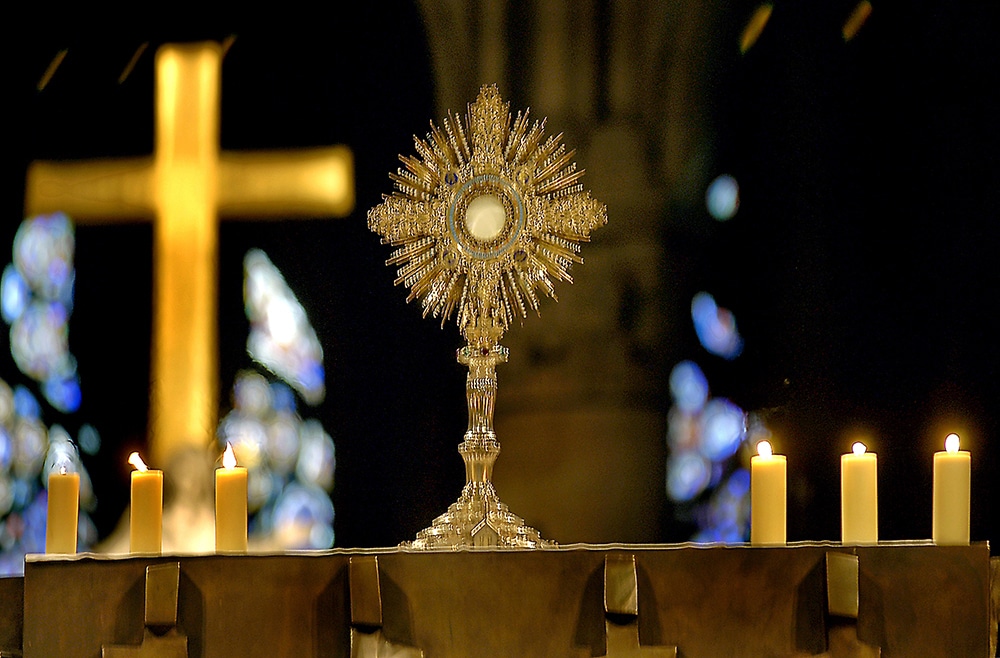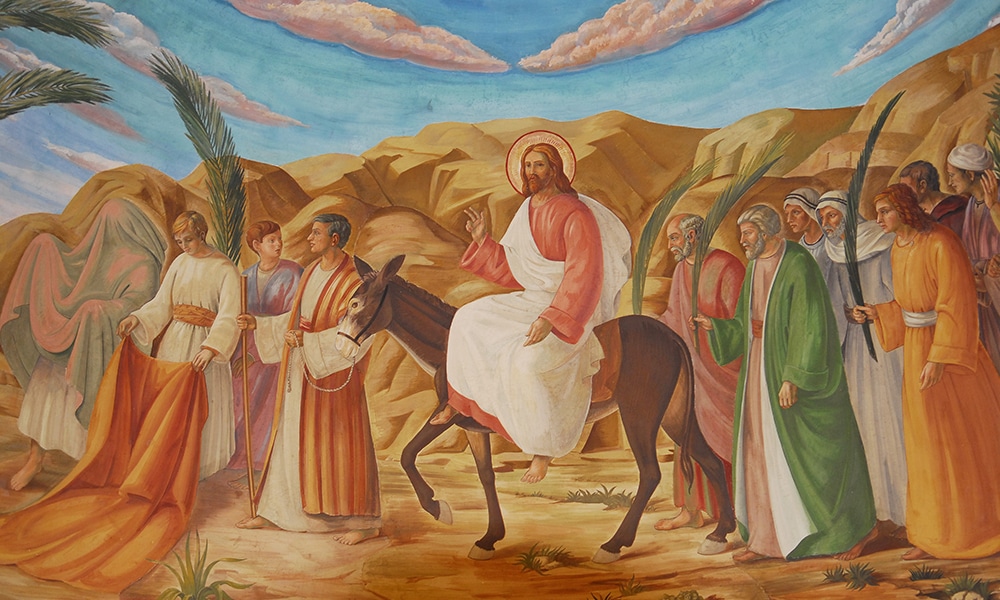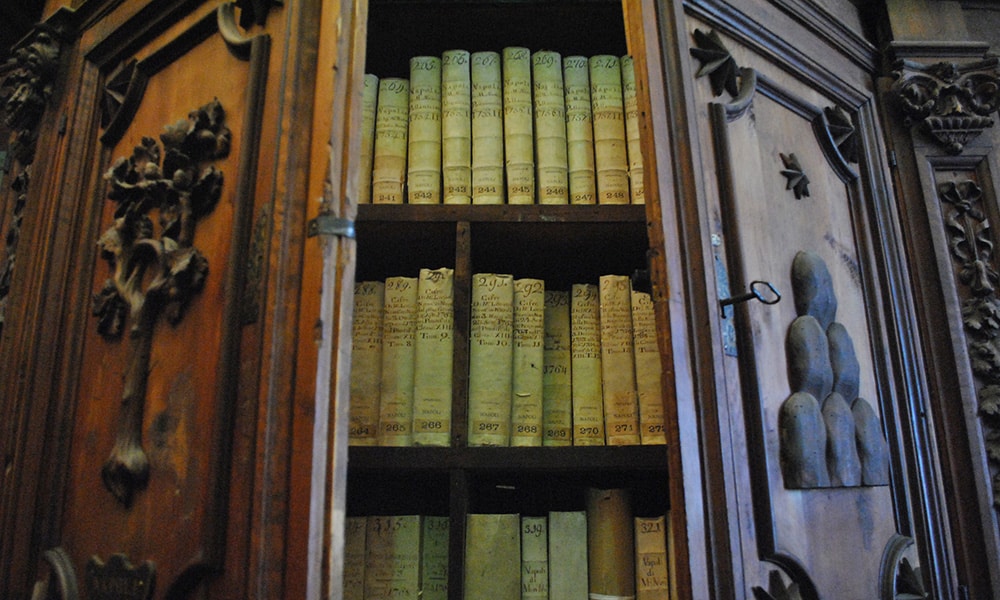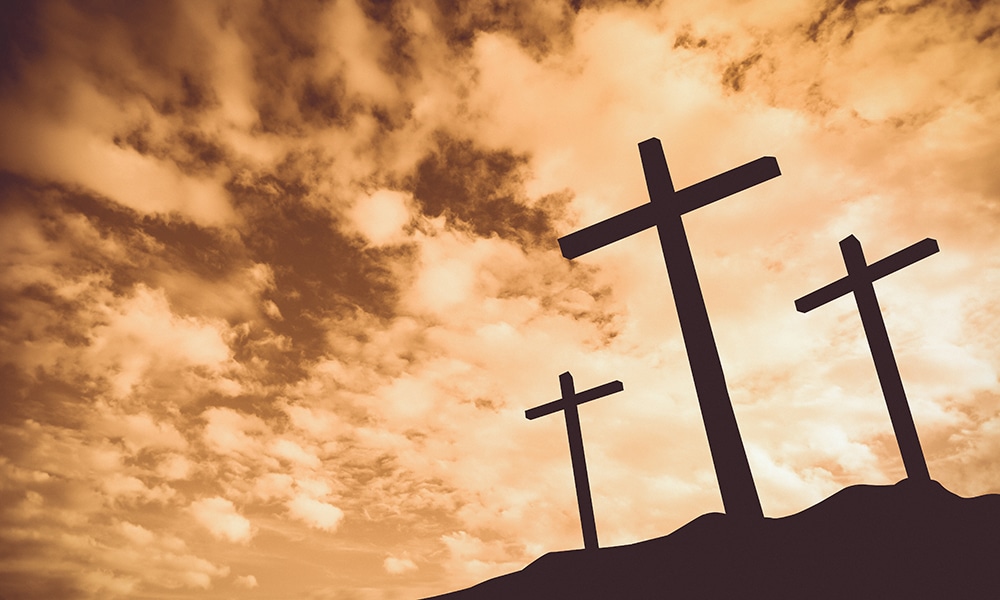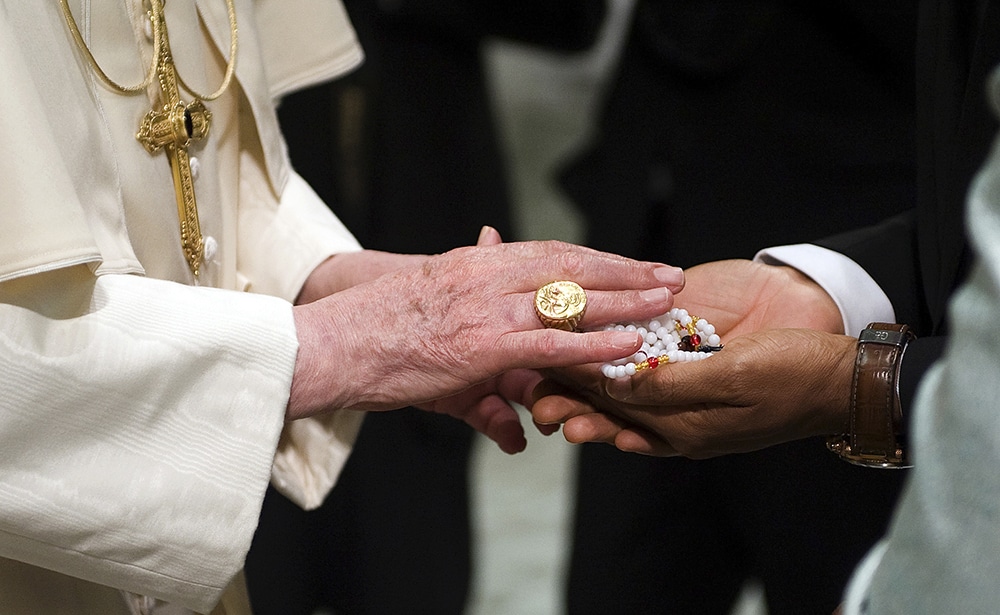 Question: I often hear teachings on the Real Presence of Jesus in the Eucharist, but I am not aware of any teaching of the true presence of Christ in the Sacrament of Reconciliation. I wonder, for example, if the priest who was listening to my confession was actually Our Lord — that just as bread and wine are transformed by the Holy Spirit, so, too, does something similar occur with the priest in confession.
Question: I often hear teachings on the Real Presence of Jesus in the Eucharist, but I am not aware of any teaching of the true presence of Christ in the Sacrament of Reconciliation. I wonder, for example, if the priest who was listening to my confession was actually Our Lord — that just as bread and wine are transformed by the Holy Spirit, so, too, does something similar occur with the priest in confession.
— Patricia Barry via email
Answer: The true presence of Christ is reserved to the Eucharist alone. While the other sacraments point to Christ and bring his blessings, only the Eucharist is Christ Jesus. This is why it is called the Most Blessed Sacrament. It is true that in each celebration of the sacraments the priest acts in the person of Christ, but the priest is not Christ himself. Christ is the actual minister of every sacrament. Thus when the priest says, “I absolve you,” or “This is my body,” it is Christ who speaks. But Christ is mediating his presence and action through the priest; the priest is not actually Christ.
In the Eucharist, however, we reverence so complete a presence that we call it transubstantiation. This means that the elements go from being bread and wine to a completely different substance and reality: the body, blood, soul and divinity of Christ. The bread and wine cease to be and only the appearance of them remains. In holy orders, the priest does not cease to be a man. Rather he is configured to Christ who acts through him. As a priest through whom Christ ministers or acts, I can assure you that I, Charles Pope, am still very much here, warts and all.
An interesting demonstration of this fact is that, in exposition and Benediction of the Most Blessed Sacrament, the priest covers his hands with a humeral veil when he holds the monstrance and blesses the people. This is because, while every other blessing comes through the hands of the priest, the blessing in Eucharistic Benediction comes directly from Christ present in the host. Hence the priest covers his hands to give this blessing.
Cost of parish programs
Question: My parish is charging a fee to register children for the CCD program. There are early and late fee options ranging from $35-$75 and an additional $20 for each successive child. Do not the faithful have a right to be catechized? Does this practice infringe upon that right?
— Maria Yarsky, Coraopolis, Pennsylvania
Answer: Parishes often ask for monetary assistance in running catechetical classes. There are expenses in running such programs and help is requested in covering those costs from those who benefit most directly from them. Calling it a fee is probably inappropriate since parishes must waive the fees for those who cannot afford them. Similar things are done in the cases of weddings and funerals. A requested donation to cover the costs of an organist, cantor, electricity, cleanup, etc., is made. If a family is poor and cannot afford the donation, it is waived.
Another aspect of charging a fee is that it generally creates more interest than things that are simply free. Most parishes have learned over the centuries that if they offer an event for free, attendance is lower and people who say they will come many times do not show up. Psychologically, people seem to value things less that they get for free. When people pay even a small amount, there is greater buy-in, and they are more likely to show up.
Msgr. Charles Pope is the pastor of Holy Comforter-St. Cyprian in Washington, D.C., and writes for the Archdiocese of Washington, D.C., blog at blog.adw.org. Send questions to msgrpope@osv.com.

